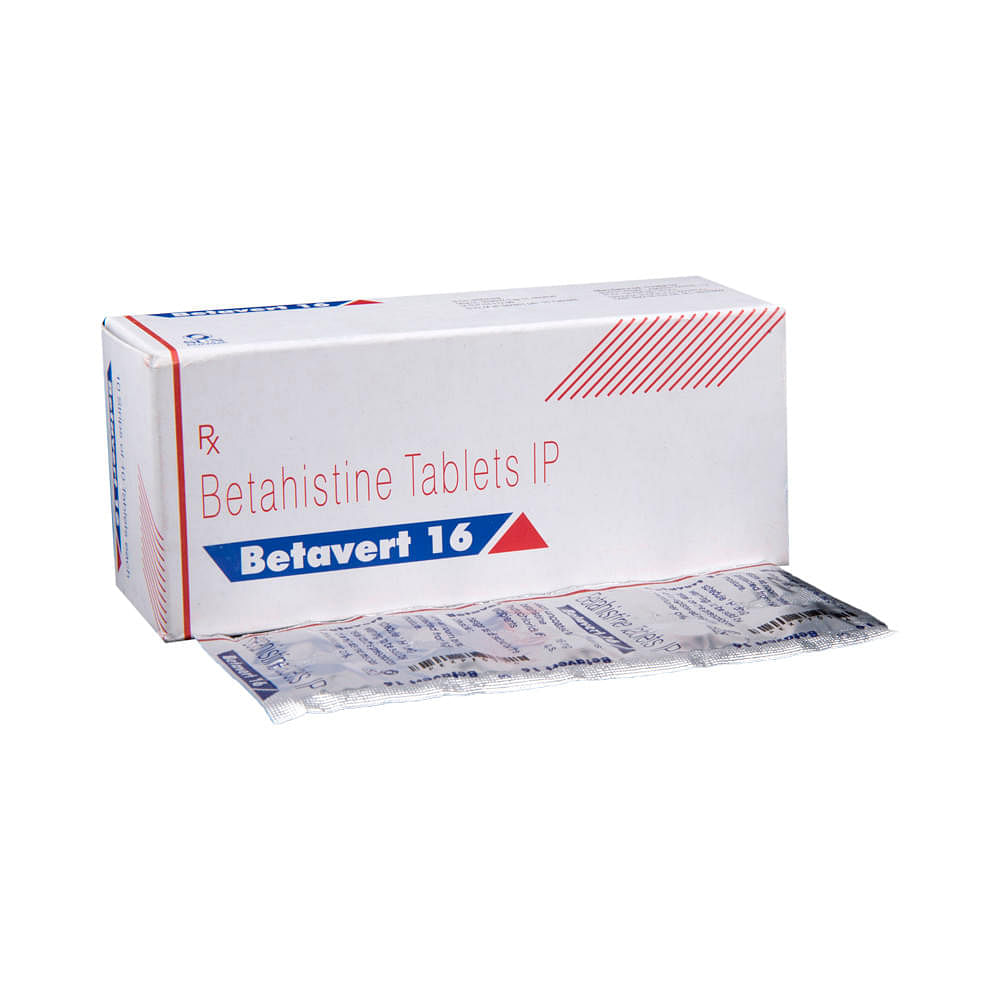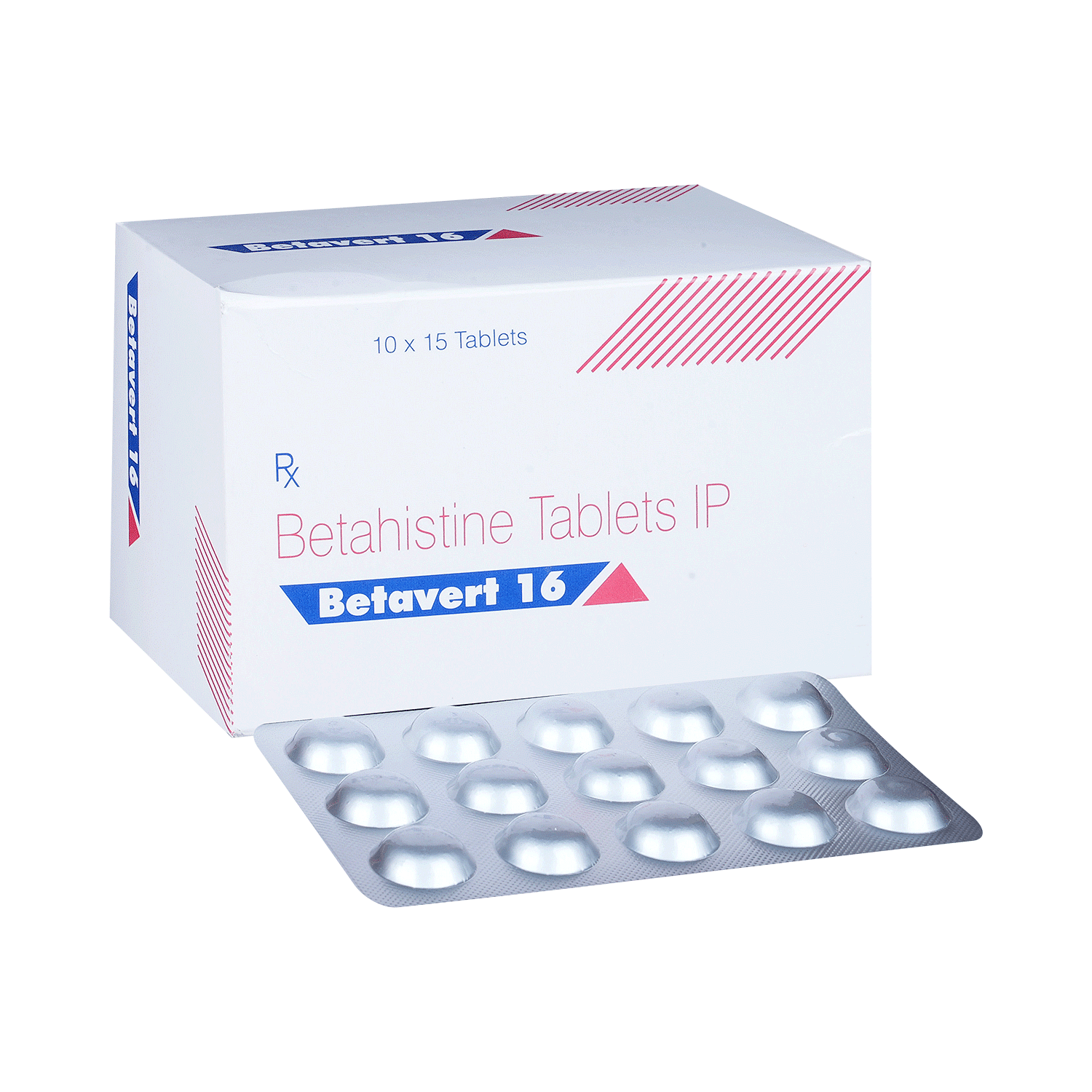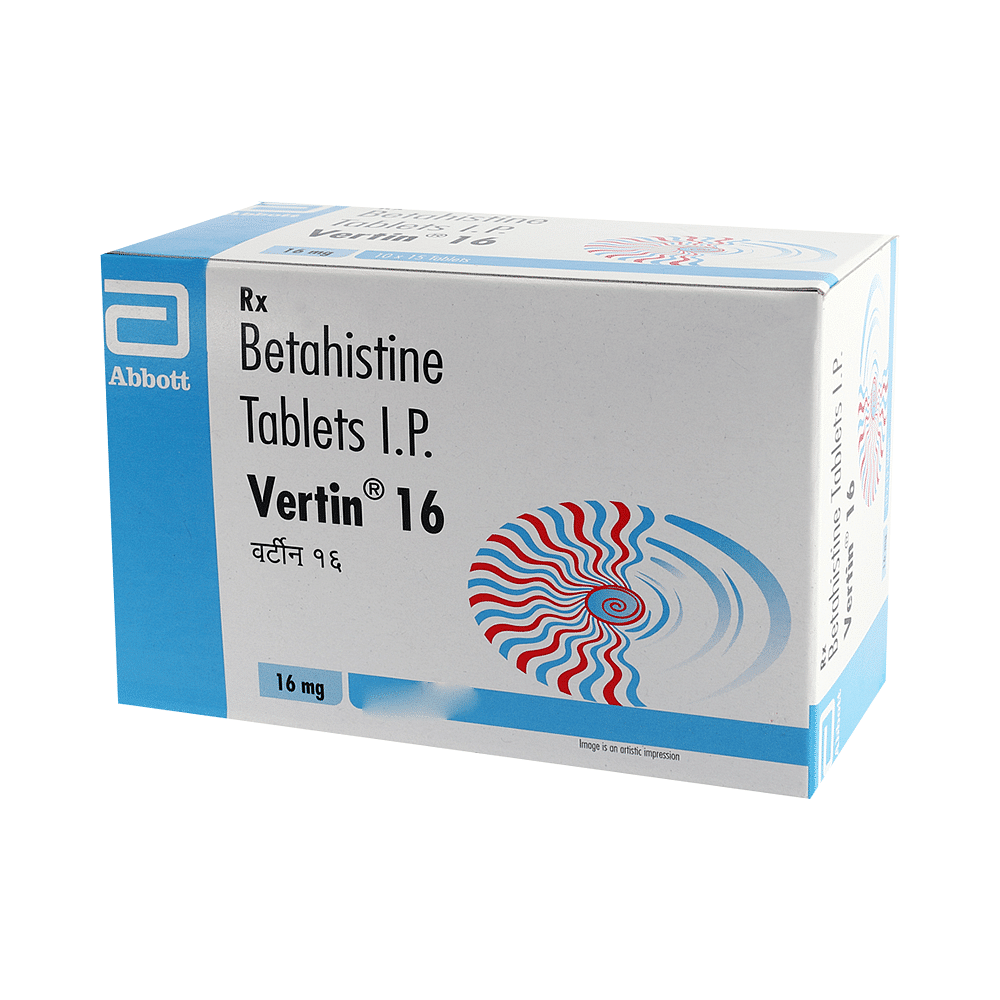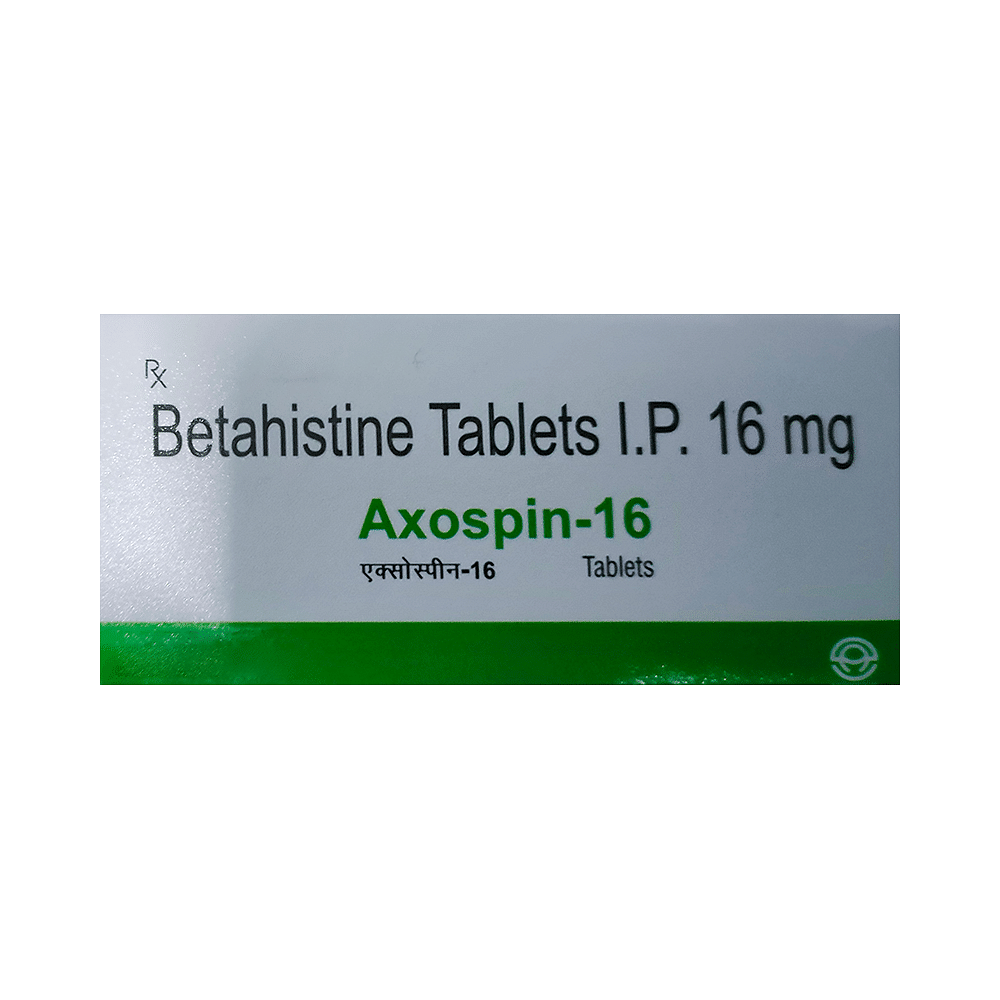
Gidinor 16mg Tablet
Manufacturer
Voopar Sciences Pvt Ltd
Salt Composition
Betahistine (16mg)
Key Information
Short Description
Gidinor 16mg Tablet is used to prevent and treat a disorder of the inner ear known as Ménière’s disease, which includes symptoms such as dizziness (vertigo), ringing in the ears (tinnitus), and loss of hearing, probably caused by fluid in the ear.
Dosage Form
Tablet
Introduction
Gidinor 16mg Tablet should be swallowed whole with water and taken at the same time(s) each day to get the most benefit. Your doctor will decide what is the correct dose to relieve your symptoms and how often you need to take it. You may need to take this medicine for several months and you should take it for as long as prescribed by your doctor even if you start feeling better. The most common side effects include headache, feeling sick, and indigestion (dyspepsia). You may also get stomach pain and bloating. Taking the medicine with food can help reduce stomach problems.
Directions for Use
Take this medicine in the dose and duration as advised by your doctor. Swallow it as a whole. Do not chew, crush, or break it. Gidinor 16mg Tablet may be taken with or without food but it is better to take it at a fixed time.
Safety Information
Side Effects
Headache Feeling sick Indigestion (dyspepsia) Stomach pain Bloating
Alcohol Warning
Consuming alcohol with Gidinor 16mg Tablet does not cause any harmful side effects.
Breastfeeding Warning
Gidinor 16mg Tablet is probably unsafe to use during breastfeeding. Limited human data suggests that the drug may pass into the breastmilk and harm the baby.
Pregnancy Warning
Gidinor 16mg Tablet may be unsafe to use during pregnancy. Although there are limited studies in humans, animal studies have shown harmful effects on the developing baby. Your doctor will weigh the benefits and any potential risks before prescribing it to you. Please consult your doctor.
Interacting Medicines
Astemizole Azelastine Buclizine Cetirizine
How it works
Gidinor 16mg Tablet is a histamine analog. It works by improving the blood flow in the inner ear which reduces the pressure of excess fluid there. Excess fluid can send signals to the brain causing nausea, dizziness or spinning sensations (symptoms of Ménière's disease). Gidinor 16mg Tablet additionally dampens down the nerve signals sent from the inner ear to the brain relieving the symptoms of Ménière's disease.
Quick Tips
Take it at the same time each day to maintain a steady amount of the medicine in your body. Inform your doctor if you have a history of stomach ulcer, asthma, or low blood pressure. Inform your doctor if you are pregnant, planning pregnancy or breastfeeding. Do not stop taking the medicine suddenly without talking to your doctor first.
Related Medicines

Betavert 16 Tablet

Betavert 16 Tablet

Vertin 16 Tablet

Axospin 16 Tablet

Davbet 16mg Tablet

Bestine 16mg Tablet

Vertiva 16mg Tablet

Hesvert 16mg Tablet

Medeta 16mg Tablet

Vermac 16mg Tablet
Frequently asked questions
What is Meniere's disease? Does it go away?
Meniere's disease is a disorder of the inner ear, affecting balance and hearing. It causes symptoms like vertigo (vertigo attacks with dizziness), fluctuating hearing loss, tinnitus (ringing in the ears), and pressure in the ears. Dizziness can lead to nausea and vomiting. Treatment plans vary depending on the individual. Discussing this further with your healthcare professional is crucial for tailored strategies.
Is Gidinor 16mg Tablet effective?
Gidinor 16mg Tablet can be effective when used according to prescribed dosage and duration, as directed by your doctor. Do not discontinue taking it even if symptoms improve; halting medication abruptly may lead to a return or worsening of symptoms.
What are the triggers for Meniere's disease?
Triggers for Meniere's disease include stress, overwork, fatigue, emotional distress, other illnesses, and pressure changes. Certain foods like dairy products, caffeine, alcohol, and those high in sodium can also trigger symptoms. A low-salt diet (2 grams/day) may help with vertigo management.
What if I forget to take a dose of Gidinor 16mg Tablet?
If you miss a dose of Gidinor 16mg Tablet, take it as soon as you remember. If almost time for the next dose, skip the missed one and take the next dose at the scheduled time. Do not double the dose to compensate for the missed one as this may increase potential side effects.
Is stress a reason for vertigo?
Stress can trigger vertigo symptoms. It may worsen existing vertigo but does not necessarily cause it on its own.
What are the causes of vertigo?
Vertigo can be caused by sudden drops in blood pressure or dehydration. Rapid changes in posture (e.g., getting up too quickly) may also make you feel lightheaded. Motion sickness, certain medications, and inner ear problems (like Meniere's disease or acoustic neuroma) are additional factors that can contribute to vertigo. It is essential to note that vertigo can sometimes be a symptom of other disorders such as multiple sclerosis or head trauma.
How long should Gidinor 16mg Tablet be taken?
Duration of treatment with Gidinor 16mg Tablet may vary. Some individuals respond quickly, while others need longer treatment periods. Taking medication regularly and patiently waiting for results is crucial. Consulting your doctor for personalized guidance is highly recommended.
What are the common side effects of Gidinor 16mg Tablet?
Gidinor 16mg Tablet may cause mild digestive issues like vomiting, stomach pain, abdominal swelling (distention), and bloating. Consuming it with food can potentially reduce these side effects. It's important to note that the absorption of Gidinor 16mg Tablet might decrease when taken with food.
Is Gidinor 16mg Tablet effective?
Gidinor 16mg Tablet can be effective if used according to prescribed dosage and duration, as directed by your doctor. Do not discontinue taking it even if symptoms improve; halting medication abruptly may lead to a return or worsening of symptoms.
What if I forget to take a dose of Gidinor 16mg Tablet?
If you miss a dose of Gidinor 16mg Tablet, take it as soon as you remember. If almost time for the next dose, skip the missed one and take the next dose at the scheduled time. Do not double the dose to compensate for the missed one as this may increase potential side effects.
How long should Gidinor 16mg Tablet be taken?
Duration of treatment with Gidinor 16mg Tablet may vary. Some individuals respond quickly, while others need longer treatment periods. Taking medication regularly and patiently waiting for results is crucial. Consulting your doctor for personalized guidance is highly recommended.


